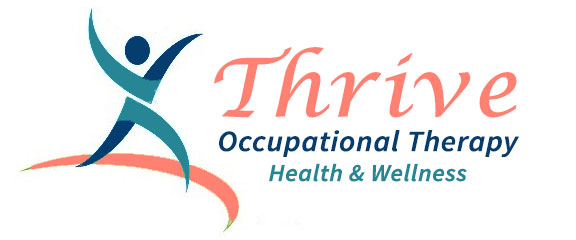Hello everyone! It’s Maddie, Thrive’s occupational therapy capstone student. I hope you enjoyed my previous posts about grounding techniques and stimulating the vagus nerve. Today, I want to explore a topic that has significant implications for our overall health: hormones—specifically, estrogen and progesterone.
Hormones are crucial in regulating various bodily functions, including mood, metabolism, and reproductive health. Estrogen and progesterone are two key hormones that greatly influence our well-being. Let’s take a closer look at their functions, importance, and ways to maintain balanced levels for optimal health.
Estrogen: The Female Vitality Hormone
Estrogen is essential for sexual and reproductive health, with levels fluctuating throughout the menstrual cycle. It typically peaks just before ovulation, signaling the body to prepare for potential conception. Estrogen is vital during puberty as it contributes to the development of secondary sexual characteristics.
As women approach menopause, however, estrogen levels decline significantly. This decline can lead to various symptoms, including hot flashes, mood swings, and vaginal dryness. It’s important to note that elevated estrogen levels may indicate underlying health conditions such as endometriosis or uterine fibroids, while low levels can signal ovarian insufficiency or menopause.
Estrogen is primarily produced by the ovaries and is also generated by the adrenal glands and placenta during pregnancy.
In addition to its role in reproduction, estrogen also serves several other important functions:
- Cholesterol Management: Helps regulate cholesterol levels.
- Blood Sugar Regulation: Plays a role in maintaining stable blood sugar.
- Bone Health: Supports the strength and density of bones.
Tips for Maintaining Healthy Estrogen Levels
To keep your estrogen levels in check, consider the following lifestyle tips:
- Prioritize Sleep: Aim for 7-9 hours of quality sleep each night.
- Manage Stress: Incorporate stress-reducing practices like yoga, meditation, or deep breathing.
- Stay Active: Engage in regular physical activity to promote hormonal balance.
- Limit Alcohol: Excessive alcohol can disrupt hormone production.
- Eat a Balanced Diet: Focus on whole foods, including plenty of fruits, vegetables, whole grains, and healthy fats.
Progesterone: The Pregnancy Hormone
Progesterone plays a crucial role in the menstrual cycle and pregnancy. After ovulation, the corpus luteum forms and produces progesterone, which thickens the uterine lining, preparing it for the possible implantation of a fertilized egg. If conception occurs, progesterone levels rise to support the pregnancy, eventually transitioning to production by the placenta. Conversely, if fertilization does not happen, progesterone levels drop, leading to menstruation.
This hormone is also important for mood regulation, thyroid health, and lactation. Low progesterone levels can result in a range of issues, including irregular periods, fertility challenges, mood swings, and sleep disturbances.
Boosting Progesterone Levels Naturally
If you’re looking to support healthy progesterone production, consider integrating more of the following foods into your diet:
- Vitamin B: Carrots and spinach
- Vitamin C: Citrus fruits and broccoli
- Magnesium: Nuts and seeds
- Zinc: Chickpeas and eggs
Understanding estrogen and progesterone is key to navigating female health throughout various life stages. By focusing on lifestyle choices that promote hormonal balance and eating a nutritious diet, you can support your overall well-being and reproductive health.
Remember, if you suspect any hormonal imbalances, it’s essential to consult a healthcare professional for personalized advice and care.
References:
Cleveland Clinic. (2022, February 8). Estrogen. https://my.clevelandclinic.org/health/body/22353-estrogen
Cleveland Clinic. (2022, December 29). Progesterone. https://my.clevelandclinic.org/health/body/24562-progesterone
